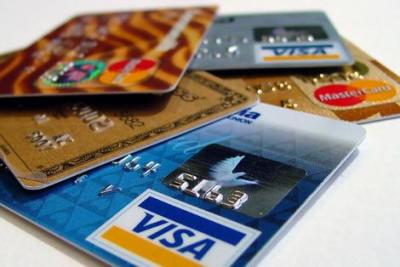4 Financial Habits That Most of Us Get Wrong

We all fight a constant battle against what we're supposed to do and what actually happens in practice. It's human nature and described accurately in Romans 7. But while no one is perfect like Christ, we are commanded to strive after Christ-likeness and as such we should learn from our mistakes and failures – especially when the stakes are high.
More than just common sense, this approach is Biblical. Scripture tells us that God will hold us accountable for the responsible use of our resources, whether they are our physical talents, our use of time or the money entrusted to our care.
When it comes to financial health, we aren't doing so well, considering the events of the past few years. After enduring the trials and tribulations of the Great Recession, we've continued to spend well beyond our means and teeter on the edge of financial disaster, racking up more than $73 billion in credit card debt in the past two years alone.
The question, it would seem, is what we can do differently. Well, addressing the following four financial habits that most people get wrong would be a good place to start.
1. Spend Within Your Means: The prodigious amount of credit card debt that we've racked up in recent years goes hand-in-hand with the fact that around 20% of people spend more than they make while 26% have overdue medical bills and 61% do not have a budget. We've allowed ourselves to become addicted to debt through a unique combination of instant gratification and a lack of financial literacy.
The solution starts with a clear picture of your finances. That means getting a handle on how your monthly expenses and debt obligations compare to your take-home and carefully eradicating certain expenses that keep you under water and prevent you from amassing any savings to speak of.
Ultimately, what you want is a thoughtfully-constructed budget which you reference and adhere to each month. If you have trouble sticking to your budget, try only using cash to make purchases or perhaps even pay a visit to a local non-profit credit counselor.
2. Plan for the Future: Much of personal finance is about planning and risk minimization. We work today so we can retire tomorrow. We buy insurance so major events don't wipe us out. Too few people are thinking this way, however. For instance, only 40% of Americans had a rainy day fund in 2012, according to FINRA's National Financial Capability Study, and 34% paid only the minimum on their credit card each month.
It is extremely important that we all set clear financial goals – such as paying off the mortgage in 5 years or retiring at 60 years old – and then construct a plan of attack for accomplishing them. One of the first goals should be establishing an emergency fund with about a year's worth of take-home in it. Such a robust fund will take a while to build, but it is a very important part of planning for your financial future and making sure unexpected expenses don't derail it.
You may assume that building an emergency fund comes after paying off debt on your financial to-do list, but that's not necessarily the case. Ideally, you should pursue a more balanced approach in the early going and only turn your full attention to settling debt obligations once you have a bit of a safety net in place. Otherwise, you're just a broken down car or medical issue away from ending up right back where you started.
3. Build Credit Over Time: Your credit score is far more important than you might think. Not only does it dictate the terms you can get on loans and which credit cards you can open, but it also affects the insurance premiums you pay and your ability to lease a car, rent an apartment, or land certain jobs. That is why it's so important to groom your credit from an early age.
The most efficient way to build credit is to have an open credit card under your own name that is in good standing. You don't even have to use it. Your credit card company will report account information to the major credit bureaus on a monthly basis anyway. The difference between good and bad credit is a whole lot of money in the long run.
4. Address Your Kids' Financial Literacy: According to VISA's global financial literacy survey, more than 70% of parents say their kids do not know the basics of money management. The only country with a higher percentage was Bosnia.
The first thing we need to do is talk to our kids about money. Studies have shown parents to be more willing to discuss the birds and the bees than money, and there's really no need for personal finance to be so taboo. This, as well as the use of interactive apps and games, will hopefully enable kids to conceptualize the value of a dollar and internalize responsible saving habits at an early age.
The second thing we need to do is give our kids practical experience. The best approach is a laddered progression where kids are entrusted with different financial products, higher allowances, and more bill-paying responsibility as they age. Ideally, they should have experience handling a prepaid card, cash, a checking account, and a student credit card by the time they head for college.
So, there you have it – a list of our shortcomings and a roadmap for redemption all in one. If we all take these steps we will help not only ourselves, but our neighbors and our country's economy as well. Let's get to work!




























